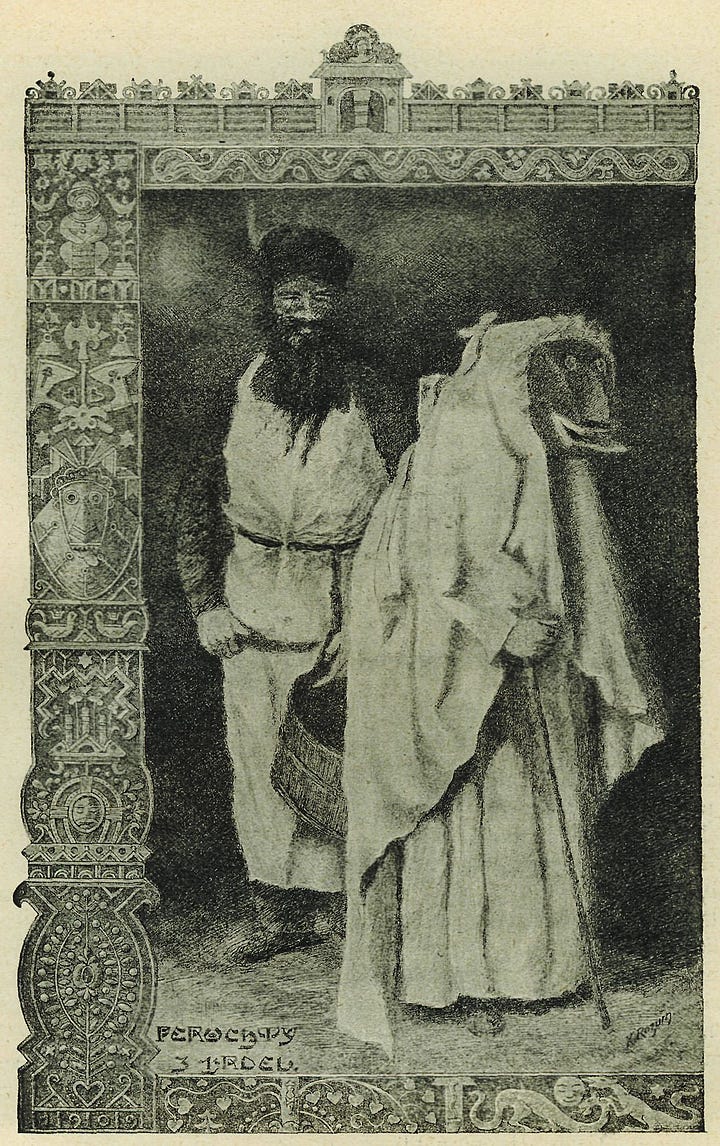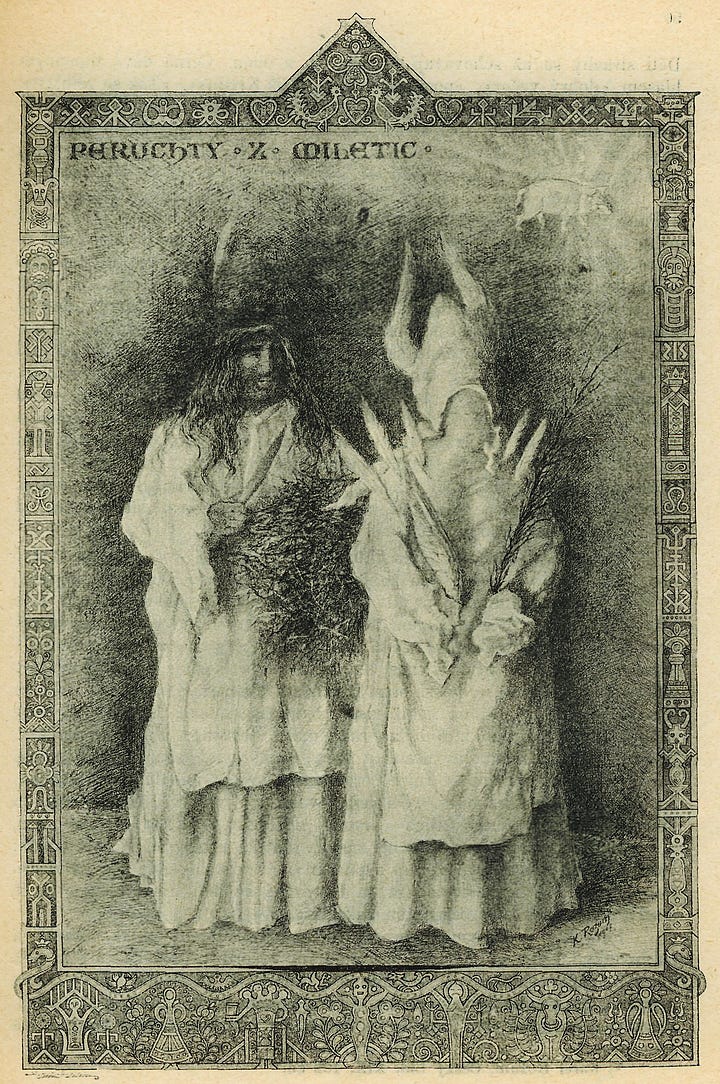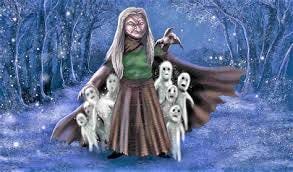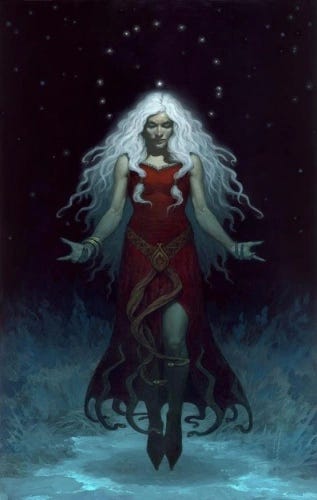Frau Perchta: The Winter Goddess Who Judges Your Cleaning Skills
12 Days of Creepmas
When the nights are long and the air turns sharp, a dark presence stirs in the heart of winter. Between Christmas and Epiphany, during the Rauhnächte — the Twelve Nights of Yule — an ancient winter goddess takes flight, and you’d do well to be ready. Her name is Frau Perchta, and while she may be known as the “Christmas Witch” or even the “female Krampus,” such titles barely scratch the surface of her fearsome legacy.
This goddess isn’t here for holiday cheer. She’s here to make sure you’ve kept your home in order, your spinning complete, and your offerings prepared. Failure to meet her exacting standards might cost you more than your pride — it could cost you your innards.
Frau Perchta's obsession is spinning, a task that was once a core part of household life in Central Europe. According to legend, your flax (raw fibers for making linen) must be spun by Twelfth Night, also known as Perchtentag (January 6th). If not, she won’t just wag a disapproving finger at you. No, Frau Perchta takes a far more gruesome approach: she’ll slit open your belly, rip out your intestines, and stuff the cavity with straw, stones, and shards of glass.
Lazy children aren’t safe either — they’re just as likely to be disemboweled for slacking off.
And if you think you can get away with a messy home? Think again. Frau Perchta’s standards are higher than Gordon Ramsay’s. Dusty baseboards, unwashed dishes, or half-finished chores are an invitation for her wrath.


Offerings to Appease the Goddess
While keeping your home in order is crucial, there’s one more way to placate Frau Perchta: leave her a tribute. Depending on the region, traditional offerings vary:
In Thuringia, Germany, dumplings and herring are her preferred treats.
In parts of Austria, a porridge of oats and herring called Perchtenmilch is left for her.
In the Tyrol region, it’s customary to leave eggs and dumplings on the roof.
These offerings weren’t originally to stave off punishment but to seek Perchta’s blessings. In pre-Christian times, she was honored as a protective deity who cared for the souls of children who died before baptism. Her visits were once seen as benevolent, ensuring prosperity and fertility for the household.
The arrival of Christianity, however, demonized her. The Church condemned the practice of honoring Frau Perchta, and monks described her as a malevolent witch. Still, the goddess refused to vanish, lurking in the shadows of folklore and emerging with a vengeance during the dark days of winter.
A Goddess with Many Faces
Frau Perchta is a woman of contradictions — both beautiful and terrifying, nurturing and violent. In some tales, she appears as a radiant woman in white, associated with purity, spinning, and the Epiphany (also called the “Shining Night”). Her name, Perchta or Berchta, derives from the Old High German word for “bright.”
In others, she takes the form of a gnarled crone with a webbed foot, reminiscent of a goose or swan, symbolizing her otherworldly nature. This crone carries a blade hidden beneath her skirts and is accompanied by an entourage of the lost souls of unbaptized children and terrifying demons — the Schiachperchten (ugly Perchten).
Her dual nature is still celebrated today in the Alpine regions. During Perchtenläufe (Perchta processions), costumed figures parade through the streets as either Schönperchten (beautiful Perchten) or Schiachperchten (ugly Perchten). These figures resemble Krampus, the horned Christmas demon, though Perchta’s mythos predates him.
The Wild Hunt: Perchta’s Fearsome Flight
Frau Perchta’s story is also entwined with the terrifying legend of the Wild Hunt. On cold winter nights, she is said to lead a ghostly procession across the sky, followed by an army of lost souls and demonic creatures. The howling wind and rumbling thunder? That’s not just weather — it’s the sound of Perchta and her horde tearing through the night.
If you hear the cacophony, you'd better stay inside and ensure your home is spotless. To witness the Wild Hunt is to risk being swept away by the spectral host, your soul claimed for eternity.
As Perchtentag approaches, there’s no better time to channel your inner witch. Sweep the floors. Dust the shelves. Finish those half-done tasks. As you scrub and tidy, imagine Frau Perchta’s claw-like fingers trailing over your surfaces, judging your efforts. Think of her as a macabre blend of Martha Stewart and the Grinch — only with sharper consequences.
And don’t forget to leave out a bowl of porridge or dumplings on the eve of January 5th. It’s not just to avoid a gruesome fate but to honor a goddess who has endured centuries of fear and folklore.





